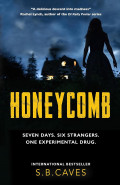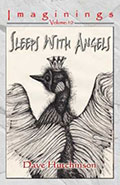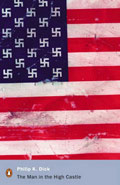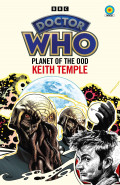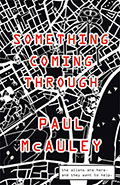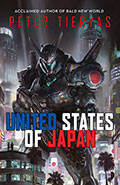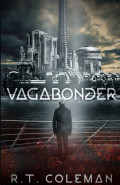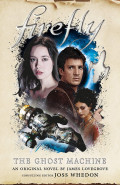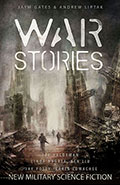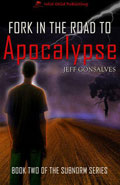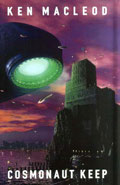Valhalla
By Ari Bach
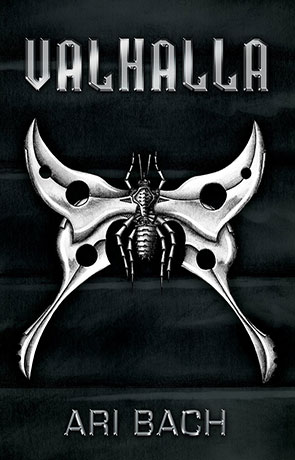
- Valhalla
-
Author: Ari Bach
-
Publisher: Harmony Ink Press
- ISBN: 978-1627987189
- Published: February 2014
- Pages: 330
- Format reviewed: E Book
- Review date: 17/05/2015
- Language: English
- Age Range: N/A
Award winning novelist and academic Gwyneth Jones asserts that ‘a typical science fiction novel has little space for deep and studied characterisation, not because writers lack the skill (though they may) but because in the final analysis the characters are not people, they are pieces of equipment.’
The initial premise of Valhalla speaks directly to this summary of the genre. Violet, a seventeen year old girl has come of age on the Isle of Skye and is wondering what to do with her life. As she explores her options with her family, something happens and her life changes forever.
The most interesting thing about the book is how Violet copes with this change, the way her character reacts and is defined by this moment. Bach paints from the same palette as Jones’ describes, using the nature of his new society to reflect and portray a misfit who is mechanical rather than technological. We have a flawed character trying to make sense of herself and those around her, resulting in a series of positive and negative moments.
Through the opening of the book Violet comes to life and her identity as a product of her upbringing and experience speaks directly to us. Bach’s society in AD 2230 is a social comment on our society, an extemporisation of some elements taken too far. This premise is something many writers attempt, making a world familiar and unfamiliar at the same time, but with the fused progress of a woman trying to understand her own place in this future, we are treated to a vivid snapshot.
In this opening section, the writing is both consistently detailed and distant, but because of the character premise this doesn’t get in the way as it might in other works and feels like it is totally part of the author’s intention. Violet being unleashed on the world promises much for a psychological science thriller in which her flawed mind will unravel at the expense of the society around her.
However, what might have built into an incredibly haunting and disturbing story that reflected the consequences of a more technologically and socially conditioned future is sacrificed on the altar of introducing a secret anti-terrorist organisation, the titular Valhalla. These are a super soldier world police whose jovial jockish demeanours belie their apparently sinister reputation. A parade of names and characters scroll past at this point, which are instantly forgotten by us and our protagonist. We’re then treated to a variety of back stories dotted with impressive statistics that seem to be trying to compete with other books you might read. It’s a lot of information being dumped and dumped and dumped. There is even an obvious Dungeons and Dragons reference.
Gradually Violet’s additional super soldier training emerges as a beacon of hope that might guide us back towards the story. This account is something of a repetition of the army training, but the different philosophy of the recruits allows the reader to mark some progress. However, if you aren’t keen on violence and its glorification, this is where the book becomes an uncomfortable read. Whereas in the opening, the mechanical tone and distant narration seemed to have a deeper subtext of social comment and a relationship with Violet’s disturbed mind, the meticulous detail here is embraced and relished in a way that feels unsettling. Instead of exploring the crack in Violet’s psyche as we did to begin with, her tendencies are legitimised, which is troubling as it contradicts the earlier subtext and speaks toward the writer’s intention.
However, this isn’t to say the writing is entirely intentional or clear cut in this. Instead it remains exhaustive, showing in meticulous detail during the sparring scenes and telling during the various training adventures. This is where the balance is also wrong. The adventures are what we want to be involved in, the training is overwritten detail. The few fleeting moments where we come close to reversing this, such as the test in the bar, we’re left feeling cheated when nothing actually happens, although in the next sequence when something does, Bach drops back into telling the story at a distance once again, further frustrating the issue.
When this second bout of training is complete we finally move on to the missions Violet and her new team will undertake. Bach continues the exhaustive super soldier mil-sim narration, but at least now we’re immersed in the situations. This is dark glorified action with trivialised consequence. At one point Violet feels bad for hesitating and letting two people die, but it’s all about her failings, not the victims or their families. A real opportunity to return to the moment at the beginning of the story and relate the ?ber characters back to their humanity is lost.
After this, the book settles into its trappings as a special operations action story. The lack of social consequence or conscious is a good reflection of a computer game as Violet and her companions progress through the levels towards her contradictorily clinical attempt at revenge and then beyond it to the main plot involving a traitor and stolen weapons. From this point, Valhalla has decided on its identity and there are things to like about Bach’s writing. The detail of the prior sections has made us passingly familiar with the majority of his future tech and setting. However the emptiness that achievement of the objective provides us with a hint towards a deeper engagement again and the plot takes another turn towards personal intimacy and relationships amidst the super soldiers. The narrative remains thick, with brick-like paragraphs delivering chunks of tell, interspersed with moments of show as respite. The conclusion sets up a sequel, but with enough payoff for this novel to end.
Valhalla is a niche read. It is clear this kind of story and style of writing will have fans who will lap up the super soldier action adventure premise, but the opening promises more.
Written on 17th May 2015 by Allen Stroud .
